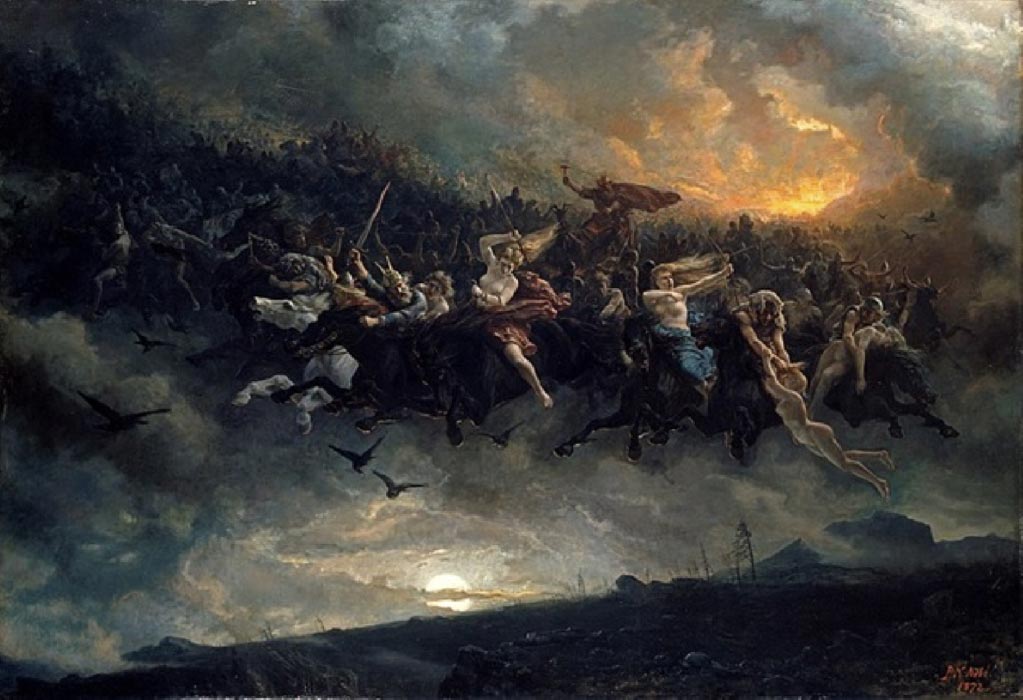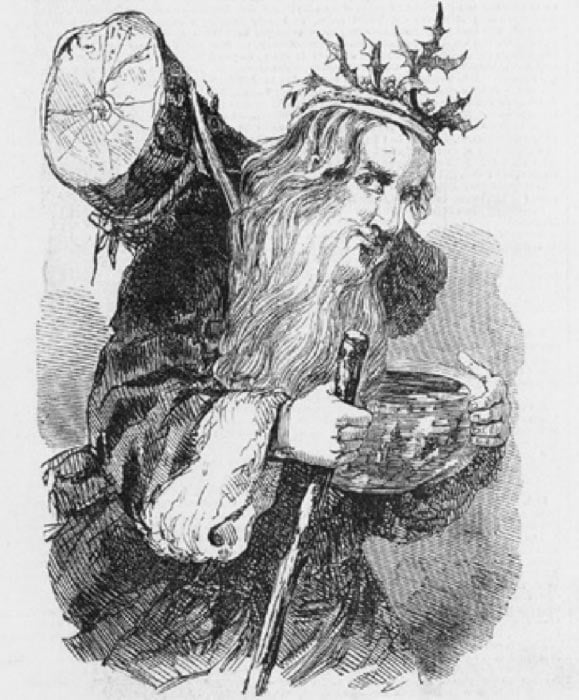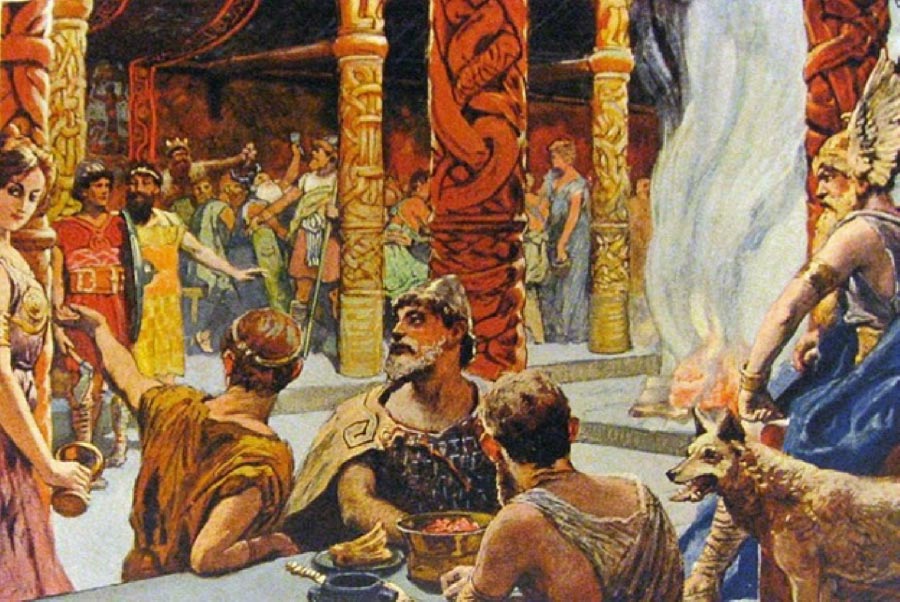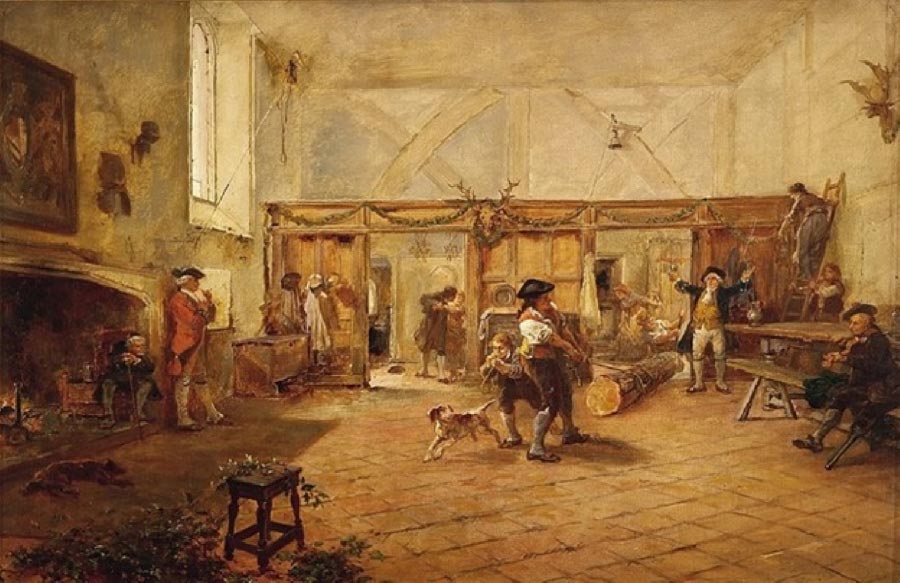
The Man Who Was Wednesday: The Norse Origin of Christmas
Christmastide traditions are a glorious amalgamation of customs and practices that have been appropriated wholesale from other belief systems, primarily those of Ancient Rome. But Rome is only part of the story because over the centuries Christmas has also acquired a number of key traditions drawn from the pagan Germanic and later Norse peoples who dominated Western Europe in the years following the collapse of the Roman Empire. This connection is all the more pertinent this year as Christmas Day falls on a Wednesday.

Christmas with the Yule Log. Illustrated London News 23 December 1848 (Public Domain)
Have a Cool Yule
Today the words Yule and Yuletide are frequently used as an alternative to Christmas or the Holiday Season. “Happy Holidays”, “Merry Christmas”, “Have a Cool Yule” are just slogans used on Christmas cards and gift tags without a thought to their origin. In brief, Yule was a midwinter festival celebrated by the Germanic peoples of post-Roman Europe, the people now called the Saxons (or Anglo-Saxons in Britain). There is linguistic evidence to suggest the concept of the Yule festivities dates as far back as the fourth century AD but given these were primarily pre-literate cultures who left behind no written records, its origins may be far, far older. Yule was later adopted by the Norse people of Scandinavia, the people better known as the Vikings – the Norse term was yulblót.
To these peoples, Yule was a period of celebrating the Winter Solstice, that turning point in the year when the nights stopped getting longer and the days began growing longer. It was a time of hope, a recognition that winter was coming to an end and that summer would eventually return. It was a time of feasting, when livestock would be sacrificed and eaten, and it was a time of communal drinking, singing and merrymaking.

Feasting with Odin in Valhalla by Emil Doepler (1905) (Public Domain)
Although there is some debate as to just how long the Yuletide celebrations lasted – some sources suggest two months (from mid-November to mid-January) whereas the 10th-century monarch King Hakon the Good of Norway said three days “or as long as the ale lasted “– it is widely believed it was a period of 12 days running from either the winter solstice or Modranicht (Mothers’ Night). So, for example, this year Yule runs from Sunday December 22, 2019 to Thursday January 2, 2020 - the Twelve Days of Yule - no prizes for guessing where the Christian church found its inspiration for the ‘Twelve Days of Christmas’. And there are plenty of other connections between the modern Christmas and the ancient Yule.
- Come Over to the Dark Side of Christmas
- Santa Claus – A Siberian Shaman on a Magic Mushroom Trip?
- Viking Blots, Beserkers and Barbaric Blood Eagles
Ancient Yule Traditions
The feasting: admittedly more important in the Middle Ages when most people went hungry most of the time, but even today in most parts of Western Europe everyone still eats more food over the Christmas holiday period than at any other time of the year. The same goes for the consumption of alcohol in many households, another throwback to the toasting and wassailing that used to take place in the great halls of the pagan Saxons. The old Norse name for these feasts was blót – the same word now adopted by Neopagans for their festive gatherings, providing a continuity between the pre-Christian era and modern times.





